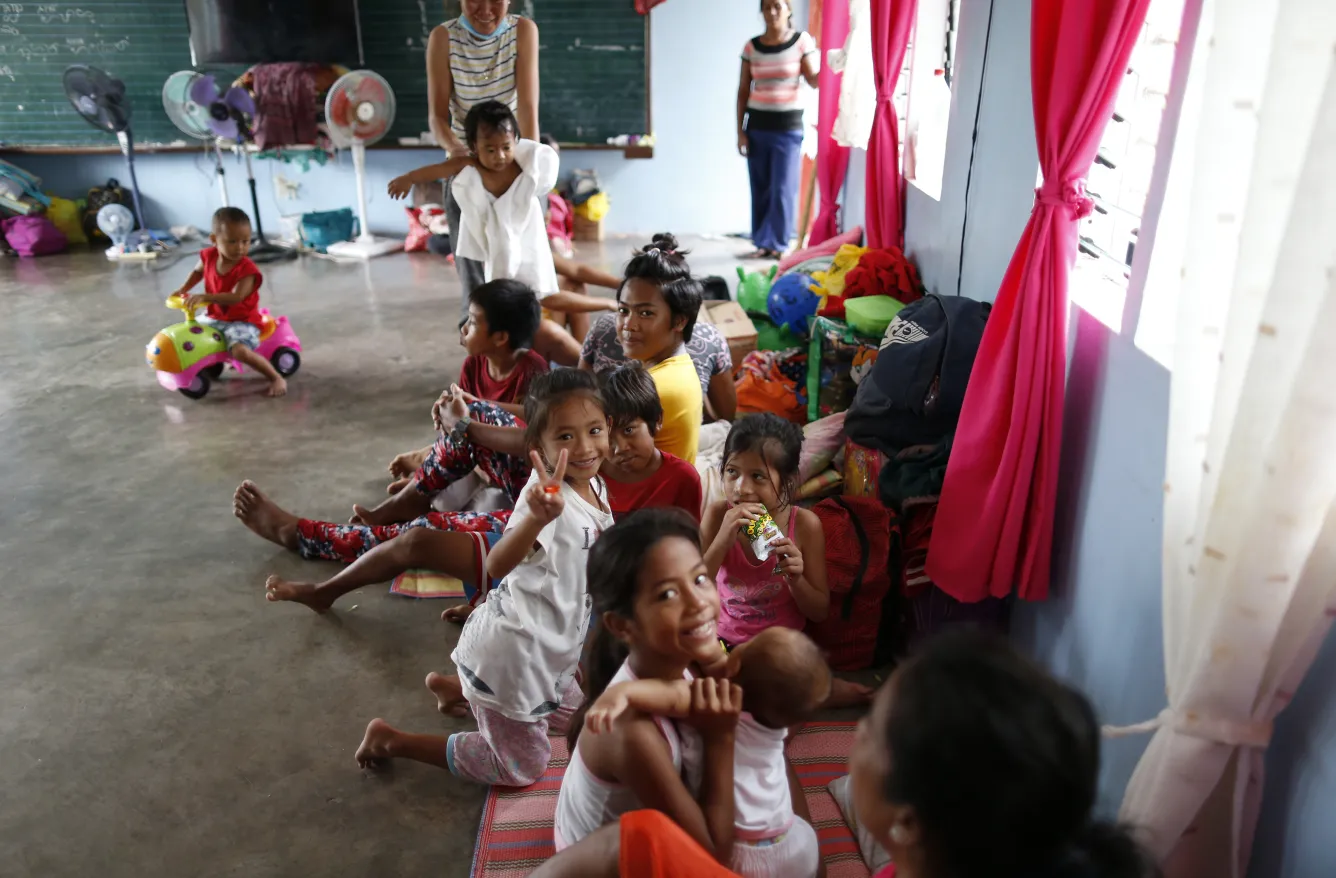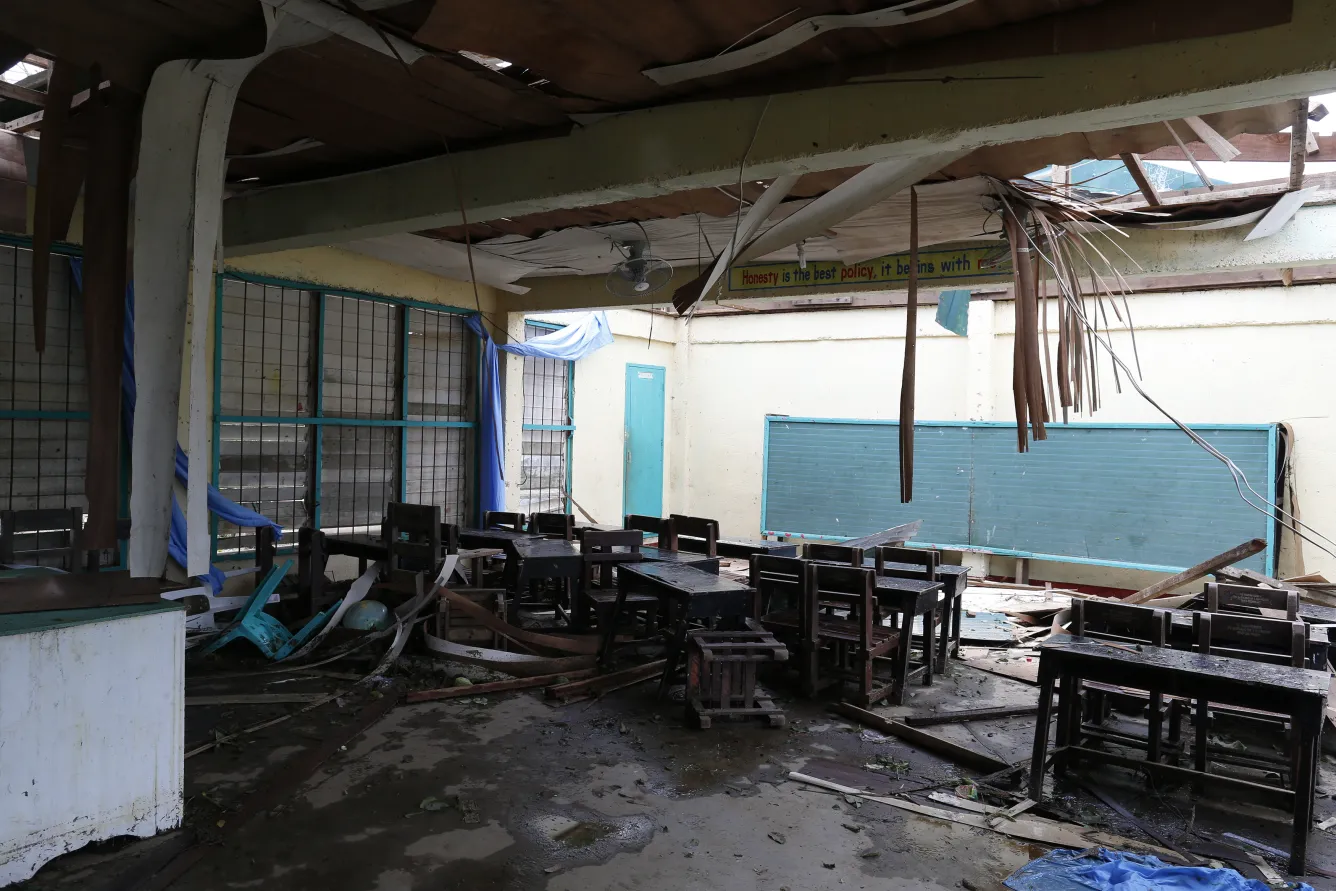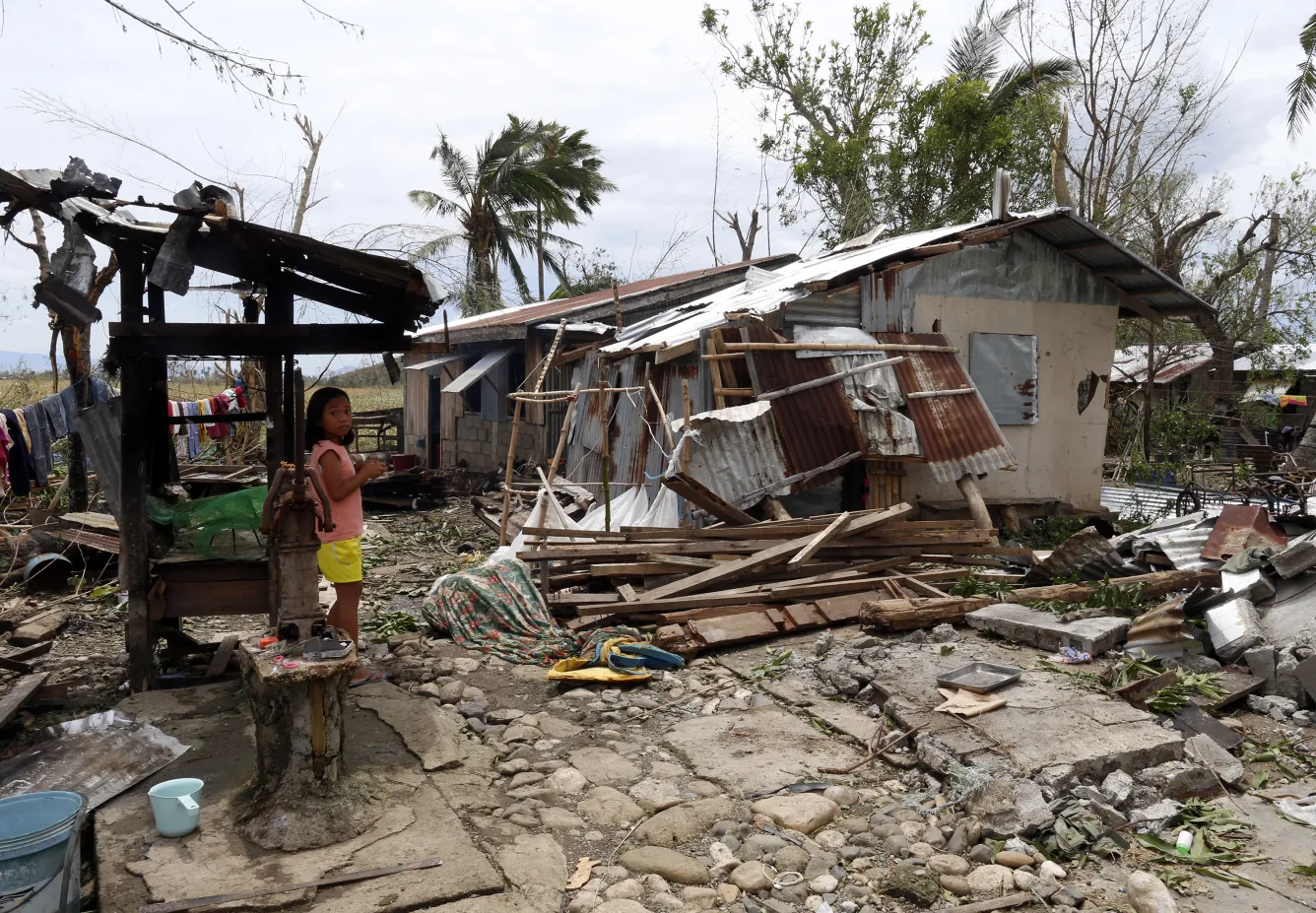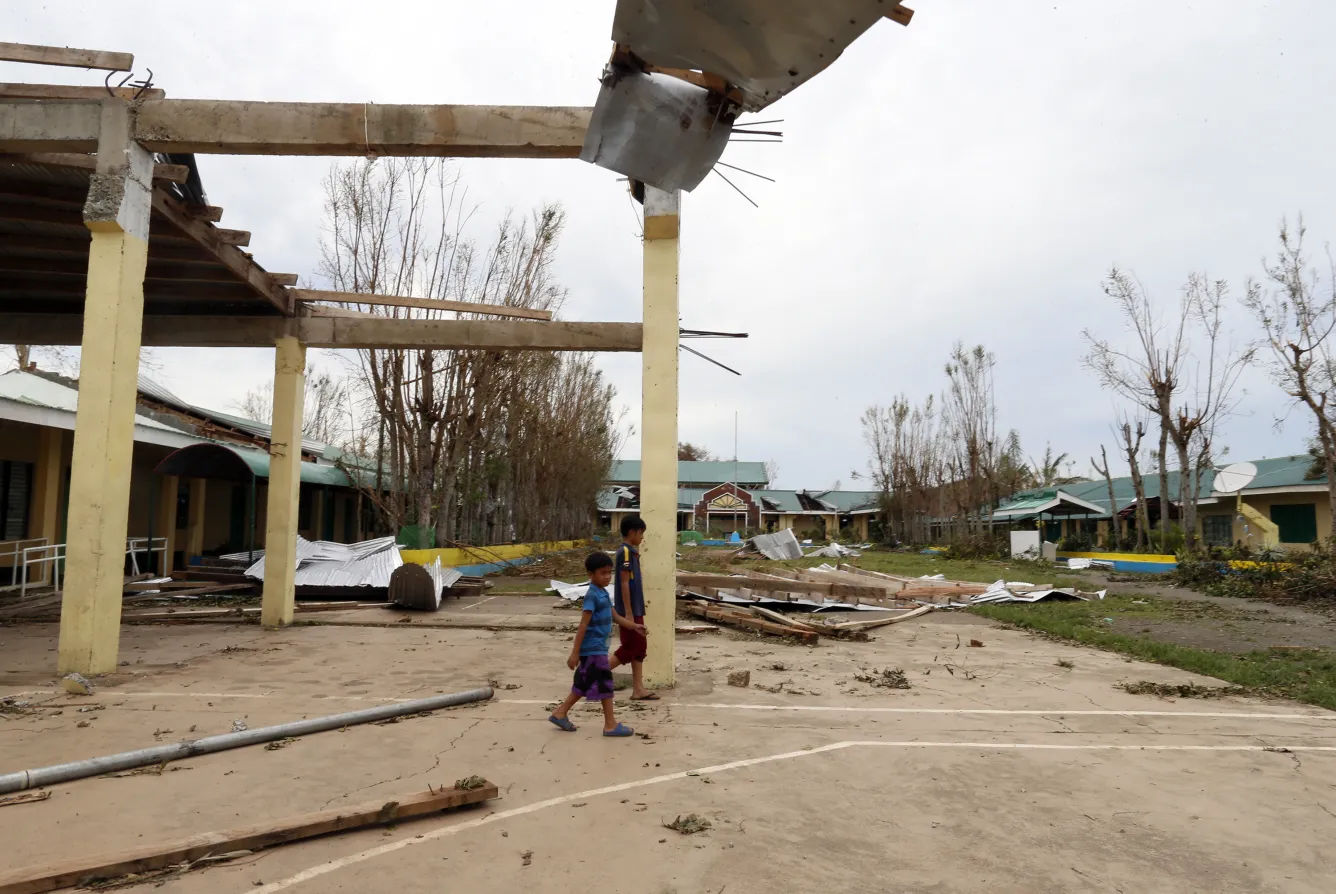UNICEF in times of emergencies
Super Typhoon Mangkhut — known as Ompong in the Philippines —is the strongest typhoon to hit in the region this year. As it made landfall on September 15, the typhoon battered the northeastern part of the country, ripping off roof sheets, cutting power and communication lines and impacting the lives of millions of people in its path.
In the wake of an emergency, UNICEF has one mission: to reach and protect every child - anywhere, anytime. Your donation to the UNICEF Canada Emergency Relief Fund will provide access to safe water, emergency care and hygiene kits, food and life-saving medicine to children in emergencies.
Support the UNICEF Canada Emergency Relief Fund to help us move quickly when a disaster strike.
[©UNICEF Philippines/2018/Jeoffrey Maitem]
What is UNICEF doing?
UNICEF, as one of the lead humanitarian agencies in the country, quickly mobilized its resources and deployed emergency specialists to assess the situation and analyze the needs in the affected regions. Although preparedness plans and evacuations coordinated by the government seem to have proven very effective, 43 people have lost their lives in the storm, amongst them thre children. As our teams make their way in the affected areas, we get a glimpse at images of destruction.
[© UNICEF/Jeoffrey Maitem]
In the Philippines, UNICEF is working with partner organizations in the areas of child protection, nutrition, health, education and WASH. UNICEF and UN agencies in the Philippines remain ready to assist the national and local government across all sectors when called upon.
[© UNICEF/Jeoffrey Maitem]
Why should I donate to UNICEF?
Record heatwaves, floods, monsoons, hurricanes, earthquakes and droughts are threatening children’s lives around the world. UNICEF supports children where help is needed most.
During a disaster, UNICEF will make the best use of your donation to support affected children and communities.
When emergencies strike, UNICEF is committed to helping children and families survive and stay safe and healthy. Last year alone, UNICEF responded to 337 humanitarian emergencies in 102 countries, reaching nearly 33 million people with safe water in humanitarian settings and supporting basic education for 8.8 million children in emergencies.
- In the Syrian Arab Republic, UNICEF and partners provided 5.9 million people with access to safe water (which included rehabilitating war-damaged infrastructure) and trucked water to 3.2 million people – in addition to reaching more than 1 million children with education services.
- In Yemen, UNICEF-supported hygiene promotion and household water treatment helped reduce the impact of a cholera epidemic that affected more than 600,000 children.
- Across 13 countries in drought stricken Eastern and Southern Africa, UNICEF provided emergency water supplies and built or rehabilitated urgently needed water and sanitation systems.
- In Bangladesh, UNICEF delivered US$8 million in emergency supplies to Rohingya refugees fleeing violence in neighbouring Myanmar, and to their host communities. Child-friendly spaces and psychosocial support eased the trauma of refugee life for more than 133,000 Rohingya children and adolescents.
- In South Sudan, UNICEF and partners vaccinated 1.8 million children against measles, treated some 207,000 children for severe acute malnutrition and helped nearly 320,000 children gain access to education.
[©UNICEF Philippines/2018/Jeoffrey Maitem]
Throughout the year, results like these were replicated in many other humanitarian situations in which the lives and futures of children and young people were at stake. Working with local partners, UNICEF steps up where help is needed most, delivering urgently needed supplies like safe drinking water, hygiene sanitation kits and medicines. Trained staff offer psychosocial support and educational materials to get children back to learning and playing as soon as possible.
The large number of extreme weather events around the world are putting children in immediate danger, as well as jeopardizing their futures. Support UNICEF in getting emergency relief to children in need around the world.





